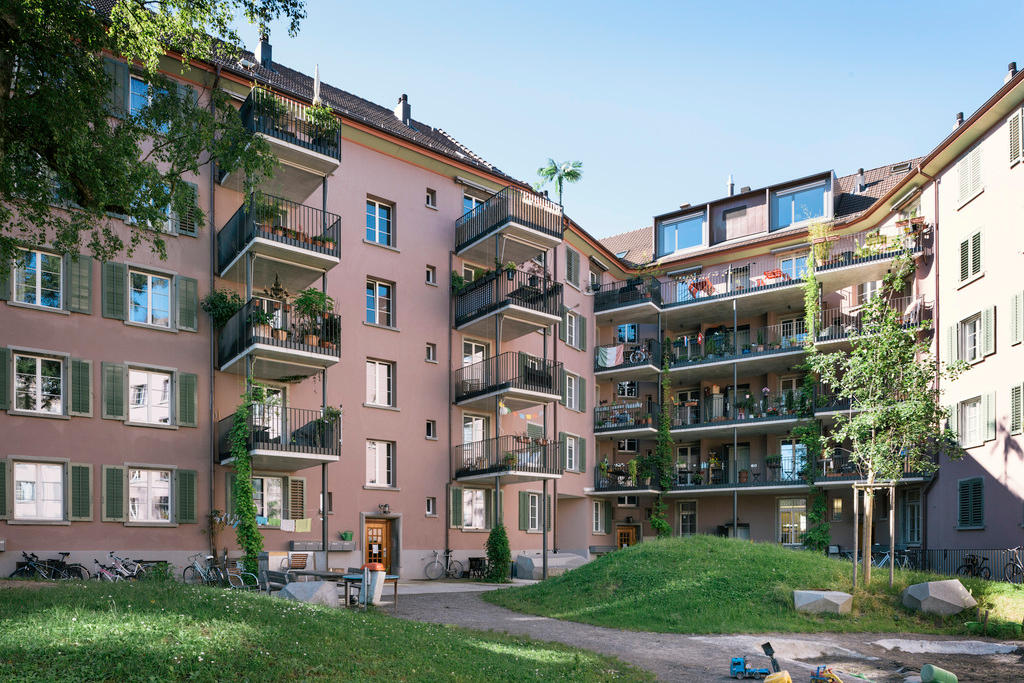Credit Suisse sells off bricks and mortar

Credit Suisse’s great Zurich property sell-off continues unabated with another landmark building coming under the hammer this month. The Zurich-headquartered bank has sold five properties in its home city – a move that has confounded some critics.
The latest building holds a prestigious address: Bahnhofstrasse 32. It was once home to Bank Leu (founded 1755) before the venerable private bank was bought by Credit Suisse. Despite spending CHF20 million renovating the Leuenhof in 2007, Credit Suisse now deems the address surplus to requirements. A triple-digit million franc figure has been agreed with new buyer Swiss Prime for the building.
Credit Suisse said the sale had been driven by “overcapacities” at Leuenhof and the fact that “clients prefer to be accommodated at Paradeplatz [the bank’s main Zurich address].”
But previous property divestments were powered by demands from the Swiss financial regulator for Credit Suisse to boost its capital buffer against future market shocks.
List of sales
Responding to these demands in 2012, Credit Suisse promptly sold its Uetlihof offices to the Norwegian sovereign wealth fund for CHF1 billion, the former Volksbank building on Bahnhofstrasse to Axa Winterthur for around CHF300 million and the Metropol building to the Swiss National Bank for an undisclosed fee.
In 2014, another Zurich landmark building – the Grieder-Haus – was snapped up by Swatch for an undisclosed amount.
Credit Suisse is now better capitalized than it was in 2012, but its recently founded Strategic Resolution Unit is still trying to shift CHF50 billion of risky and non-core assets off its books to give the bank a more solid base.
Financial journalist Lukas Hässig has questioned why the bank has paid out some CHF4.6 billion in dividend payments since 2012 while almost certainly raising less than this amount in property sales. Hässig believes that major shareholders have twisted Credit Suisse’s arm into selling its own bricks and mortar. Raising cash by selling property has ensured there is enough liquidity around to pay dividends, Hässig’s argument goes.
“If you own good prime real estate in Switzerland then it makes sense to keep it because it is a good investment,” he told swissinfo.ch. “Credit Suisse must have had some reason to sell these properties.”
Credit Suisse said it has a policy not to comment on media reports. The bank also said that it reviews its property portfolio – which still contains its Paradeplatz HQ and the Savoy hotel in Zurich – on a regular basis.
Swiss commitment
Martin Janssen, emeritus professor of finance at the University of Zurich and current head of the Ecofin financial consulting group, is also nonplussed by Credit Suisse’s programme of selling of its prime real estate – some of which it continues to occupy on lease arrangements.
Janssen cannot see how the sale of such prominent buildings can have much of an impact on the bank’s balance sheet when it is trying to shed multiple billions of francs of unwanted assets.
“These buildings contain not just monetary value, but they also convey the impression of stability,” he told swissinfo.ch “The banking business is all about trust and stability.”
Credit Suisse maintains that it is committed to its Swiss base despite selling off so much of its Zurich property portfolio.
“Credit Suisse’s commitment to Switzerland as its home market remains unchanged. We continue to invest in the Swiss market. We are strengthening our Bank for Entrepreneurs footprint by hiring 40 new client advisors to support entrepreneurs in respect of their specific needs. Also, we support the Swiss national football team and maintain many other sponsorships here,” a spokesman told swissinfo.ch in a written response to questions.
In the meantime, one of Credit Suisse’s main shareholders, the United States investment fund Harris Associates, has backed the bank to turn around its business with its restructuring plans by increasing its stake to above 10%.
“If they can follow through the execution of this plan, this bank has got a lot more upside,” Harris Associates Chief Investment Officer David Hero told Bloomberg Radio.

In compliance with the JTI standards
More: SWI swissinfo.ch certified by the Journalism Trust Initiative














You can find an overview of ongoing debates with our journalists here . Please join us!
If you want to start a conversation about a topic raised in this article or want to report factual errors, email us at english@swissinfo.ch.